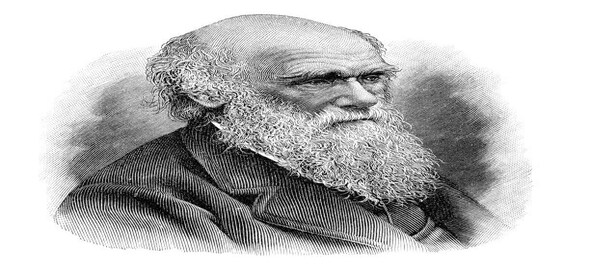
Charles Darwin, the English naturalist whose scientific theory of evolution by natural selection became the foundation of modern evolutionary studies, is considered the father of evolution. And, his evolutionary theory, despite many contradictions later, gave the most rational explanation of the formation of new species then.
Therefore Darwin Day is not only a celebration to commemorate the birthday of the doyen of science on February 12, 1809, but also as a day to highlight his contributions to science and to draw inspiration to promote scientific developments in general.
According to Darwin, evolution is a very slow and gradual process. He concluded that evolution took place over a very long period of time. Even after more than 16 decades after Darwin elucidated his theory of the development of life is still referred as the finest in this field, though the scientistic world is still arguing and debating the theory of evolution.
Questions on the theory
Many scientists have questioned the foundations of Darwin's evolution theory. Darwin put together the first comprehensive argument for evolution of species. Evolutionary biologists are becoming more Darwinian in their outlook on speciation and evolution in general than they were before.
The causes of non-acceptance of evolution are fundamentally because of inadequate empirical evidence as well as limited understanding of the content of modern evolutionary theory. Inadequate understanding of the nature and religion and various other aspects like psychological, political and social factors also supported the non-acceptance.
Another objection to Darwin’s theory was the lack of clear mechanism for how variation in traits was passed from one generation to the next. It was not clear until the work of Gregor Mendel in the late 19th century with which a formal understanding of inheritance began to emerge.
Michael Egnor, a neurosurgeon at the State University of New York, had criticised the evolutionary theory saying that there was a sharp discontinuity between species, not the gradual transitions that Darwinism predicted. Egnor’s fundamental criticism of evolutionary theory— the fossil record shows sharp discontinuity between species and not the gradual transitions that Darwin had predicted.
Another argument that is stressed is that Darwin never made a serious attempt to make a rigorous analysis of the multiplication of species.
Charles Darwin’s theory of gradual evolution is not supported by geological history, according to Michael Rampino, the renowned geologist at New York University, who published an essay in the journal — Historical Biology. Rampino noted that a more accurate theory of gradual evolution was put forth by Scottish horticulturalist Patrick Matthew prior to Darwin’s published work on the topic.
Stephen Meyer’s thoughtful and meticulous book — Darwin’s Doubt made some convincing arguments on the failure of Darwin's evolution theory. Two other books—The Deniable Darwin and Other Essays by David Berlinski, and Debating Darwin’s Doubt, an anthology edited by David Klinghoffer — outlines some of the arguments that Meyer’s book had stirred. Meyer not just demolished Darwin’s concept, he defended a replacement theory, intelligent design(I.D.).
Darwin’s theory of evolution—change over time due to the process of natural selection is universally accepted by scientists. However, this is shrouded by controversy despite getting wide support through evidence such as fossils that prove that creatures evolved and the fact that bacteria evolves to deal with antibiotics.
Beyond Biology
The theory’s chief challenger has been religion. At the heart of the debate is a dispute over evidence that humans evolved from apes millions of years ago. The tenets of evolutionary theory are simple: life evolved, largely under the influence of natural selection, this evolution took a rather long time
Biologists had mostly accepted evolution, but rejected his theory of evolution of species via natural selection. The arguments against the Darwinian ideas stem from a number of beliefs held by biologists of the mid-twentieth century. There was a dogma that reproductive isolation between species made them more real than Darwin had thought and it was argued that Darwin did not understand the importance of intercrossing in preventing divergence.
But, despite all the arguments on the Darwin's evolution theory, it remains as one of the finest discoveries in the chapters of science transcending beyond the realms of biology.
—The author, Vanita Srivastava, is a science writer. The views expressed are personal.
(Edited by : C H Unnikrishnan)
First Published: Feb 12, 2024 10:26 AM IST
Check out our in-depth Market Coverage, Business News & get real-time Stock Market Updates on CNBC-TV18. Also, Watch our channels CNBC-TV18, CNBC Awaaz and CNBC Bajar Live on-the-go!


In Andhra Pradesh's silk hub, weavers' cry for help echoes through election season
May 3, 2024 12:24 PM
Feroze Gandhi to Rahul Gandhi: Rae Bareli's tryst with Congress
May 3, 2024 11:36 AM
Rahul Gandhi to contest from Raebareli, close aide KL Sharma from Amethi
May 3, 2024 8:39 AM
BJP's Hindi heartland dominance faces test in phase 3 polls
May 2, 2024 9:14 PM

